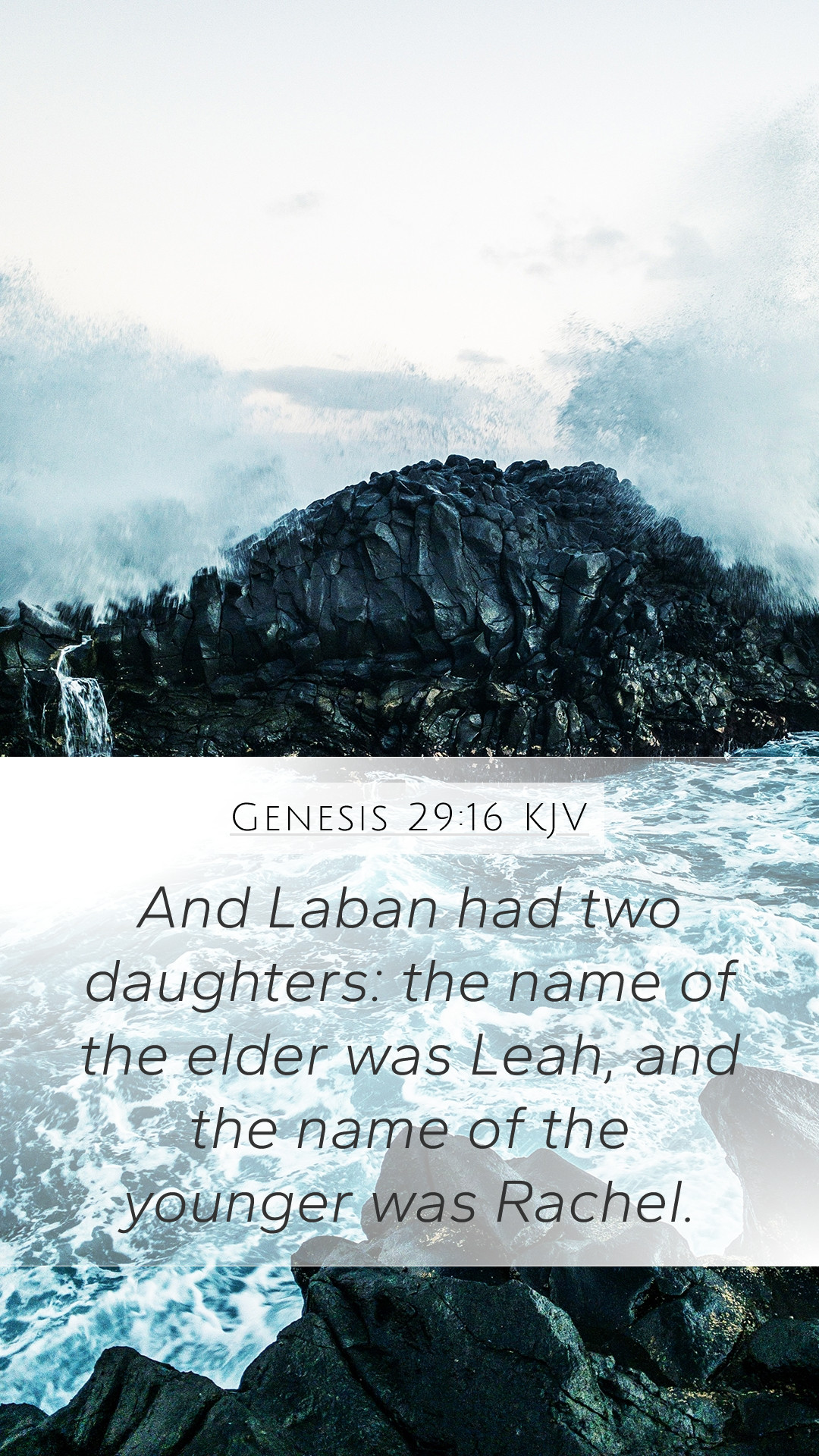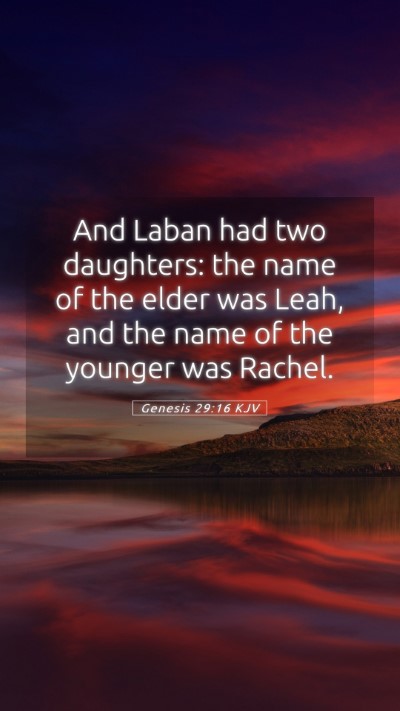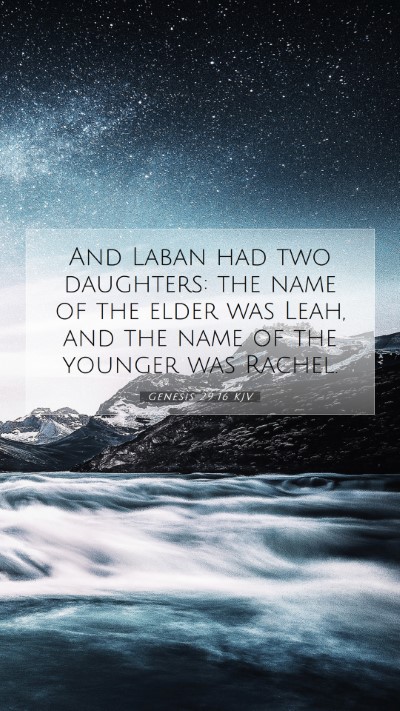Understanding Genesis 29:16 - Biblical Exegesis and Commentary
Genesis 29:16 states: "Now Laban had two daughters: the name of the elder was Leah, and the name of the younger was Rachel." This verse, while seemingly straightforward, opens up a deeper discussion on family dynamics, cultural context, and the significance of personal relationships within the Biblical narrative.
General Overview of the Verse
The naming of Laban's daughters serves not merely as a historical reference but also sets the stage for the unfolding story of Jacob, Leah, and Rachel. This verse is pivotal as it introduces key characters whose lives are intertwined in the complex tapestry of Biblical history.
Insights from Public Domain Commentaries
Combining thoughts from prominent commentaries such as those by Matthew Henry, Albert Barnes, and Adam Clarke, we can extract deeper meanings regarding this verse.
Matthew Henry's Commentary
Matthew Henry emphasizes the significance of the family. He notes that the mention of Leah and Rachel reflects Laban's household's complexities and the familial structures that shape the lives of their members. He suggests that the preference for Rachel exposes cultural dynamics related to beauty and desirability. This commentary implies that the daughters symbolize different virtues and challenges, offering a nuanced understanding of the human experience.
Albert Barnes' Notes
Albert Barnes highlights the implications of the names themselves, emphasizing that Leah, whose name likely means "weary" or "tender," and Rachel, meaning "ewe," reflect their personalities and roles in the narrative. Barnes suggests that the contrast between the two sisters is emblematic of deeper themes of love, labor, and familial tension that resonate throughout the text.
Adam Clarke's Commentary
Adam Clarke offers insights into the importance of the narrative, pointing out that Laban's daughters are not only pivotal for Jacob's story but also serve as archetypes of human emotion and relational challenges. Clarke underlines how the verse foreshadows the struggles Jacob will face in choosing between them, which is a reflection of internal conflict and choices faced throughout life.
Key Themes and Interpretations
- Family Dynamics: The mention of the two daughters sets a critical foundation for the extended narrative that addresses themes of sibling rivalry, loyalty, and the quest for love.
- Cultural Context: The social and cultural implications surrounding marriage and family in ancient times can lead to a richer understanding of this verse.
- Character Development: The introduction of Leah and Rachel allows readers to follow their development and significance in Jacob's life and the broader narrative of the Israelite people.
Applications to Daily Life
This verse encourages readers to reflect on their own familial relationships and the virtues and challenges that come with them. It poses questions about preferences, biases, and the complexities of love and loyalty in our daily lives.
Cross References
- Genesis 29:23: Discusses the deception that occurs with Jacob's marriage.
- Genesis 30:1-2: Highlights Rachel's feelings of jealousy and her struggles with infertility.
- Genesis 35:16-19: Reveals the significance of both Leah and Rachel in the lineage of Israel.
Conclusion
Genesis 29:16 is a powerful gateway into understanding the relationships that shape individual narratives in Scripture. By analyzing key themes like family dynamics, cultural context, and character development through resources like Bible verse commentaries and Bible study insights, we enrich our understanding not only of this particular verse but of the broader teachings of the Bible.


